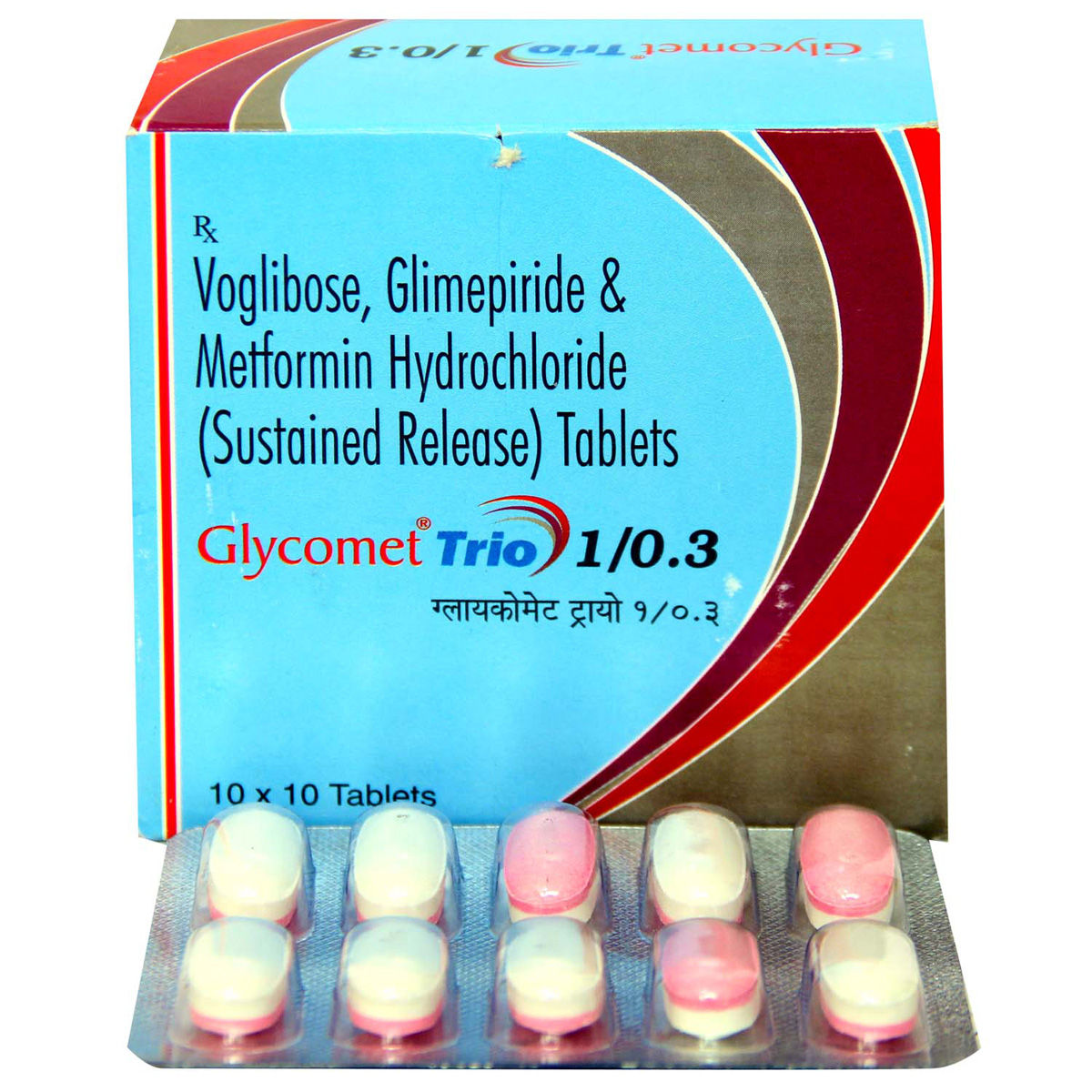Glycebose Gm 1.3 Tablet 10's
Glycebose Gm 1.3 Tablet is used to treat type 2 diabetes mellitus. It acts by increasing the amount of insulin released by the pancreas. Thus, prevent the blood glucose levels from rising to very high levels and keeps your diabetes under control. It may cause certain common side effects such as hypoglycaemia (low blood glucose levels), taste change, nausea, diarrhoea, stomach pain, headache, and upper respiratory symptoms. Before taking this medicine, you should tell your doctor if you are allergic to any of its components or if you are pregnant/breastfeeding, and about all the medications you are taking and pre-existing medical conditions.
₹121.5*
MRP ₹135
10% off
₹114.75*
MRP ₹135
15% CB
₹20.25 cashback(15%)
Free Delivery
With Circle membership
(Inclusive of all Taxes)
This offer price is valid on orders above ₹800. Apply coupon PHARMA10/PHARMA18 (excluding restricted items)
Know Your Delivery Time
Provide Delivery Location

Whats That

Secure Payment

India's Most Trusted Pharmacy

Genuine Products
Synonym :
Composition :
Manufacturer/Marketer :
Consume Type :
Return Policy :
Expires on or after :
About Glycebose Gm 1.3 Tablet
Glycebose Gm 1.3 Tablet is a combination of anti-diabetic drugs used to treat type 2 diabetes mellitus. Type 2 diabetes is a chronic or lifelong condition that affects the way your body processes glucose. The blood glucose level increases and causes symptoms such as frequent urination, increased thirst, and increased hunger; hence, people with type 2 diabetes either do not produce enough insulin or, if at all the insulin is produced, it is unable to perform its function in the body (insulin resistance).
Glycebose Gm 1.3 Tablet is a combination of three antidiabetic drugs: Glimepiride, Metformin and Voglibose. Glimepiride, which is a 'sulfonylurea', acts by increasing the amount of insulin released by the pancreas. Together, these prevent the blood glucose levels from rising to very high levels, thus keeping your diabetes under control.
Glycebose Gm 1.3 Tablet should be taken with food to avoid an upset stomach. Based on your medical condition, your doctor will decide for how long you need to take Glycebose Gm 1.3 Tablet . Glycebose Gm 1.3 Tablet may cause certain common side effects such as hypoglycaemia (low blood glucose levels), taste change, nausea, diarrhoea, stomach pain, headache, and upper respiratory symptoms. Most of these side effects do not require medical attention and will resolve gradually over time; however, if you experience these side effects persistently, consult your doctor.
Do not stop taking Glycebose Gm 1.3 Tablet without consulting your doctor, as abrupt stopping may increase your sugar levels, which could further increase the risk of eyesight loss (retinopathy), kidney (nephropathy) and nerve damage (neuropathy). Glycebose Gm 1.3 Tablet should not be taken if you have type 1 diabetes mellitus or severe kidney or liver disease. Please inform your doctor if you have any type of heart disease, are planning to get pregnant or are breastfeeding.
Uses of Glycebose Gm 1.3 Tablet
Medicinal Benefits
Glycebose Gm 1.3 Tablet contains Glimepiride, Metformin and Voglibose. Glimepiride, which is a 'sulfonylurea', acts by increasing the amount of insulin released by the pancreas. Metformin, which is a 'biguanide', acts by lowering the glucose production in the liver, delaying glucose absorption from the intestines and increasing the body's response to insulin. Voglibose, which is an 'alpha-glucosidase inhibitor', prevents the breakdown of complex sugars into simple sugars such as glucose in the intestine. Glycebose Gm 1.3 Tablet prevents the blood glucose levels from rising to very high levels, thus keeping your diabetes under control. Glycebose Gm 1.3 Tablet also helps to prevent serious complications of diabetes such as kidney damage (Diabetic Nephropathy), blindness (Diabetic Retinopathy), loss of sensation in your hands and feet (Diabetic Neuropathy), Glycebose Gm 1.3 Tablet also helps to reduce your chance of having a heart attack or stroke. Being a combination of three drugs, Glycebose Gm 1.3 Tablet reduces the need to take multiple pills and hence makes it easier to remember to take the drugs.
Side Effects of Glycebose Gm 1.3 Tablet
- Hypoglycaemia (low blood glucose level)
- Taste change
- Nausea
- Diarrhoea
- Stomach pain
- Flatulence
- Headache
- Upper respiratory symptoms
Directions for Use
Storage
Drug Warnings
Some diabetic patients taking Glycebose Gm 1.3 Tablet may develop a rare but serious condition called lactic acidosis. In this condition, too much lactic acid accumulates in the blood. So, your liver and kidney's proper functioning is required for the elimination of excess lactic acid from the blood. You should not take Glycebose Gm 1.3 Tablet if you have kidney disease, as measured by a blood test. Glycebose Gm 1.3 Tablet may lower vitamin B12 levels, so try to have blood tests annually blood and vitamins. Glycebose Gm 1.3 Tablet , when used with or without insulin, has the tendency to extremely lower the blood sugar level. So, the doctor may lower the dose of insulin. Glycebose Gm 1.3 Tablet may lower your thyroid-stimulating hormone (TSH), so an annual check-up of TSH is suggested.
Therapeutic Class
Drug-Drug Interactions
Drug-Food Interactions
Diet & Lifestyle Advise
- Fill your half plate with starchy veggies, quarter with proteins and quarter with whole grain.
- Eat at regular intervals. Do not take the long gap between a meal or snack.
- Monitor your blood sugar level regularly, especially when there are a lot of fluctuations.
- Invest in at least 150 min of moderate-intensity physical activity and 15 minutes of high-intensity exercise every week.
- Lose weight gradually to achieve a healthy body mass index (18.5 to 24.9).
- Replace refined carbohydrates-containing foods with wholegrain foods and increase intake of fruits and veggies and other fibre-enriched foods.
- Reduce intake of saturated fat (or hidden fats) in the food like chips, crisps, pastries, biscuits and samosas. Choose omega-3 fatty acid-containing oils for daily cooking. For frying, you may use palm oil, mustard oil, groundnut oil, rice bran oil and safflower oil.
- Do not take stress as it may elevate your blood sugar level. You may adopt stress management techniques like mindfulness, yoga or meditation to control stress-related blood sugar changes.
- Opt for low-fat dairy products (low-fat yoghurt, fat-free milk and cheese etc.).
- Keep your blood pressure as normal (120/80) as possible. As it reduces the risk of cardiovascular diseases in diabetes patients.
Habit Forming
How Glycebose Gm 1.3 Tablet Works
What if I have taken an overdose of Glycebose Gm 1.3 Tablet
Alcohol
Unsafe
Taking Glycebose Gm 1.3 Tablet with alcohol can cause hypoglycaemia and can also lead to a rare but life-threatening condition known as Lactic Acidosis. So, keep your doctor informed if you drink alcohol.
Pregnancy
Caution
As the data around the use of Glycebose Gm 1.3 Tablet in pregnant women is limited, the use of Glycebose Gm 1.3 Tablet in pregnancy is restricted. It is highly recommended to consult your doctor before taking this drug in case you are pregnant.
Breast Feeding
Caution
The name is not recommended during breastfeeding. However, your doctor may prescribe it for you during breastfeeding if he/she feels that the benefit to you outweighs the risk. You should not take Glycebose Gm 1.3 Tablet without a doctor's advice.
Driving
Caution
Glycebose Gm 1.3 Tablet may cause hypoglycaemia (low blood sugar levels) whose symptoms include unusual sleepiness, shivering, palpitations, sweating etc. This may affect your ability to drive. Use caution while driving or doing anything that requires concentration.
Liver
Caution
Glycebose Gm 1.3 Tablet to be taken with caution, especially if you have a history of liver diseases/conditions. Dose may have to be adjusted by your doctor depending on your liver function tests.
Kidney
Caution
Glycebose Gm 1.3 Tablet to be taken with caution, especially if you have a history of Kidney diseases/conditions. Dose may have to be adjusted by your doctor depending on your kidney function tests.
Children
Caution
Glycebose Gm 1.3 Tablet is not recommended for children below the age of 18 years. The safety and effectiveness of Glycebose Gm 1.3 Tablet has not been established in children due to limited evidence. So, only take Glycebose Gm 1.3 Tablet if the doctor has prescribed Glycebose Gm 1.3 Tablet .
Country of origin
Manufacturer/Marketer address
Author Details
We provide you with authentic, trustworthy and relevant information
FAQs
Disclaimer
Customers Also Bought
Product Substitutes
Recommended for a 30-day course: 3 Strips


























